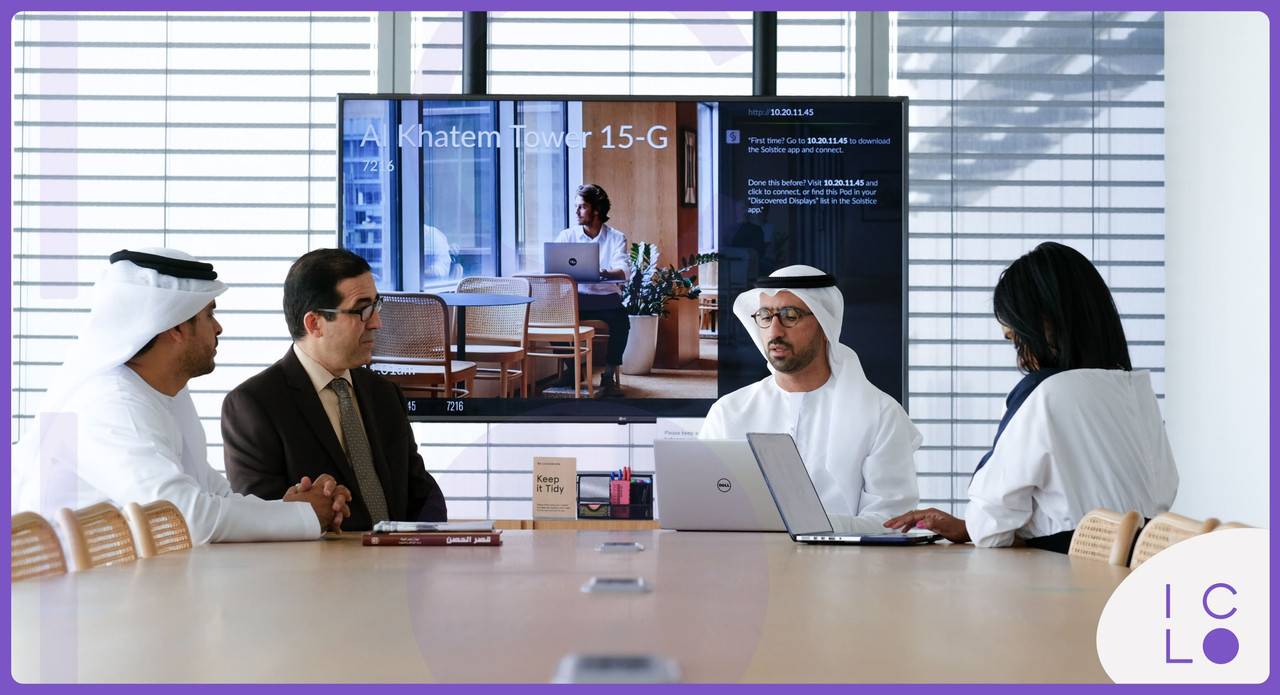July 18
UAE legal overview on AI and Robotics in Logistics Industry
Writer : Iclo Team

Blog Details
The UAE has been named first in the MENA region and fourth globally in an important logistics report ranking emerging markets. The 2021 Agility Emerging Markets Logistics Index placed also the UAE as the first in Business Fundamentals.
From the beginning, the legal framework for the logistics sector was perceived as a strategic lever aimed to facilitate the long-term positioning of the UAE as a regional leader. UAE federal laws regulating logistics and transportation were a reflection of the legislature’s philosophy to opt for a liberal approach promoting transborder commerce to and from the UAE. Emerging free zones provided progressively more legal flexibility for the logistic sector and accelerated the international attractiveness of UAE as the preferred hub logistics hub for Eastern and Western market leaders.
For the three last decades, the legal framework helped the industry to develop exponentially. But this successful model is increasingly challenged by the transversal penetration of 4.0 industrial technologies forcing and accelerating a transformation that is perceived by logistics professionals as a survival condition in a highly competitive global market.
Many automatization and digitalization trends like the Internet of Things (IoT), sophisticated robotic and even smart roads are nowadays transforming gradually but irreversibly the transportation, logistics
and supply chain sector in UAE.

AI and robotic is bringing unprecedented new technical solutions to the industry including:
-
demand trends prediction via algorithms.
-
intelligent warehousing reducing remarkably inventory errors.
-
optimizing last-mile delivery to customers.
-
tracking products movement with the Internet of Things.
-
utilizing driverless vehicles in delivery
-
accurate information processing …
This global tendency is increasingly perceived in UAE and it is bringing and will consequently trigger legal problems and challenges.
Some of these legal challenges are common to those that other jurisdictions are facing especially the impact of automation on incoterms. In its version of 2020, Incoterms listed important novelties including a new Incoterm DPU (Delivered at Place Unloaded) that replaces the DAT (Delivered at Terminal). The ICC retitled this term because the buyer and/or seller may agree on goods delivery in a place other than a terminal due to the utilization of a certain automated technology. The other new incoterm is Bill of Lading (BL) with on-board notation for maritime transport specifying that the goods have been loaded aboard the ship. Accordingly, the seller is responsible for the goods available at its own premises or at a named place and is responsible for loading the goods on the buyer's transport or automated vehicles.
But some of the other legal challenges are more specific and interconnected with the needed adaption laws and regulations in force or the necessity to fill a legislative gap.
On the federal level, the enactment on 1st November 2020 of the Regulation of Crypto Assets promulgated by The UAE’s Securities and Commodities Authority (SCA) and published by “The Authority’s Chairman of the Board of Directors Decision No. (21/R.M) expected to enter enforce after 30 days after its publication by the official gazette, will provide the logistics technologies utilizing blockchain or wishing to utilize it, with new horizons that might include the direct payment via crypto assets as recently implemented by KIKLABB Free Zone become the first United Arab Emirates government-owned entity to accept crypto payments.
As drones are expected to be used increasingly in supply chain management, industry actors have to comply with specific regulations on emirates levels. In Dubai, drones have to be registered with the General Civil Aviation Authority (GCAA) that delivers also the Non-Objection Certificate (NOC) to fly in the authorized zones.
The logistics industry can also expect to take significant advantage of the introduction by Dubai’s Roads and Transport Authority (RTA) of legislation to regulate the trial runs of autonomous vehicles in the emirate. With this experimental legislation, self-driving trucks can disrupt UAE logistics.
Autonomous cargo ships will be the other complementary constituent that will accelerate automation, but UAE Federal Maritime Law needs to be amended accordingly. The successful integration of drones and driverless land vehicles into the industry might open door to the next experimentation of unmanned cargo ships. In March 2020, Abu Dhabi Ports signed an agreement with Canadian naval architects to develop the world’s first fully unmanned autonomous commercial marine tugs.
The generalization of AI and Robotics in the full business cycle of logistics and supply chain in free zones and UAE Mainland will require the gradual adaptation of existing local and federal laws and the implementation of totally new ones. AI dedicated Insurance law, smart contracts regulation, specific data protection law, and the redefinition of the civil and criminal liability in AI and robotics-related matters are the next legal workshops that will provide the logistics industry with the comprehensive legal set to accelerate transformation towards full automation.

The issues related to ethics and security are also determinant. Smart Dubai has developed Dubai’s Ethical AI Toolkit. It helps industries including logistics and supply chain management, in “understanding how AI systems can be used responsibly. It consists of principles and guidelines, and a self-assessment tool for developers to assess their platforms”.
The AI Ethical Guidelines developed based on Dubai’s AI Principal Ethics is dealing with five pilar components that are fairness, transparency, accountability, and explainability of AI and Robotic technology. The private sector in UAE including the logistician supply chain management has no the road map to build ethical AI based envoremnet.
Based on the model guide, logistic and supply chain management companies in free zones or mainland can set up their own guides and include the most appropriate engagement e.g. if an accident occurs and an immediate decision has to be taken by the AI systems like the best route to choose with fewer casualty impacts especially for driverless trucks and cars.
In the production logistics context, many important liability questions will rise also, e.g. how to determine in advance who will be liable for incorrect order volumes?
Consequently, the logistics industry is an excellent candidate sector to issue a dedicated AI and Robotics Federal Law to lead the market by providing innovative and customized legal corpus.
Other Blogs

10-Point Checklist to follow when i...
When you decide to start your next Tesla company with your friend, you need to be sure to not get scammed by the end of the day by keeping in your mind these 10 points...

UAE legal overview on AI and Roboti...
However Ai and robotic are helping humans in a lot of aspects, there's a lot of challenges when it comes to legal...

How the initiative by His Highness...
The initiative by His Highness Sheikh Mohammed Bin Rashid Al Maktoum will help startups to achieve their goals. It facilitates for them...